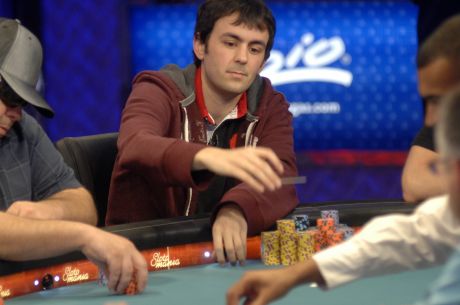Poker Shrink Vol. 65: Habituation

Human beings get used to things. New sights and sounds eventually become familiar. Even something that is initially very exciting can become routine. Habituation is this tendency we all have towards a decreased response to certain stimuli. A lot of the changes we make in our lives are to avoid habituation. We move furniture, change how we drive to work, read different types of books �� all because we are tired of a certain pattern.
On the other hand, there are some things that ��never grow old��. A ��65 Mustang convertible can forever fascinate some guys. Maybe music does it for you and maybe, just maybe, what turns you on every single time is poker. Congratulations, that is one form of habituation you do not have to overcome. But when it comes to our favorite game there are several aspects of habituation to consider.
First and most obviously habituation can simply mean we are bored. If poker bores you, then quite frankly you should quit playing. Why would you risk money doing something that is not engaging you, when you know that inattention will make you a losing player? Go do something else with your money and more importantly with your time.
If you are a playing poker for a living, then we have another name for habituation: the grind. And you have a problem. Overcoming the mind-numbing effects of poker habituation is nearly impossible. Sitting at the table hour after hour doing something you are completely bored by is not only a horrible life, but your mindset cannot be such that you can play your ��A�� game. There are certain tricks you can use, but the best advice for the professional is the same as it is for the amateur. Get a life where you don��t have to sit on your ass and be bored.
Habituation has a third bad component and that is falling into patterns. When you play on remote control, you tend to make the same moves and the same bets in similar situations. Now that is fine if your bets are the same no matter what is in your hand, but what happens more often is that you begin to raise with good hands and limp with draws. Or, even worse, you develop obvious tells because you just aren��t paying attention. Ask any good player who gives off the easiest tells to read. He will usually tell you that it is first the amateur and then the tired player. Habituation leads to tells, which in turn lead to losses.
Next, some good news. Habituation has some good applications for your game. There are aspects of the game that should become second nature to you. For instance, you want to always put your chips in the pot the same way. Chip tells are some of the easiest to read and therefore the most looked for by your opponents. You actually can habituate yourself to move your chips the same way every single time you bet. Sure you ought to check yourself every so often, but habits are good when they are precisely the same at the table. A learned poker face is an example of a solid, consistent habituation.
Doing something repeatedly and consistently by habit can also be a means of reminding yourself of skills and practices you always want to have in your game. Here is one I was taught by a professional I really respect. Every tournament round, when the clock starts to wind down to the break, players start to get anxious to get on with the break. So did my friend, but then he started this practice of going around the table player by player, reviewing his reads on each one of them. Not only is this a good memory tool to reinforce your reads, but this ritual that is now habituated keeps him focused on the hands for the last few rounds of each session.
Habituation can help your game or it can hurt you. Your choice.








